Once again it is an honor to be invited by Roger to share some thoughts on the best in film music releases. After another strange year, admittedly there are not a lot of newer scores that really stood out to me and as I look at some of those that feel like well-done scoring, the music itself will probably not be remembered past the new year. Oddly, the 2021 scores that stood out also all seem to be in one particular section of the alphabet!
Five scores in alphabetical order
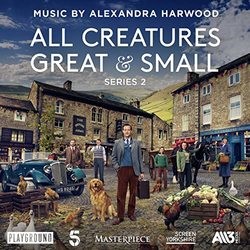
The stories of Yorkshire vet James Herriott had some new life breathed into them with this Channel 5 reboot now finishing up its second series whose music appears in this release by composer Alexandra Harwood (THE GUERNSEY LITERARY AND POTATO PEEL SOCIETY). Her style is filled with poignant, lyrical music peppered with gorgeous string writing and light wind colors. There is some hint at the original series’ theme and that move beyond into a collection of cues that are sort of theme and variations. While the music is in alignment with a lot of British period drama writing, Harwood’s style works quite well and is a rather unique hybrid of Alexandre Desplat and Dario Marianelli. Certainly a composer to continue to keep an eye on and this is a great place to start.
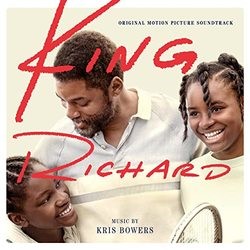
Kris Bowers (BRIDGERTON) continues to turn in solid work and this score is a great example of his skill. There is a fine intimacy in the mostly string orchestrations here that also include some dense harmonic writing and touches of electronics for additional color and effect. The score is reminiscent of the work of Stephen Warbeck and a little John Lunn.
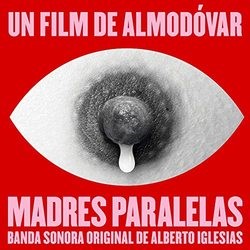
Alberto Iglesias is often led into scoring films with a sort of Herrmann-esque quality and this is especially true when he is working with director Pedro Almodovar. But, what can feel at first like an homage of the past turns out to be a rather intricately-designed score. Here we get a little contemporary Piazzolla-like style that serves to create the “dance” between the two mothers of this story. MADRES PARALELAS is a rather fascinating work. What is additionally interesting is that Iglesias has taken motives from two source cues and woven them into his score. This reveals itself the more one listens carefully to this score and is rather brilliant.
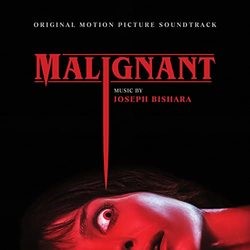
Joseph Bishara (THE CONJURING) has sort of been type-cast as the go-to horror scoring expert. He brings to this genre an approach that employs contemporary techniques and ingenuity that creates music that does not feel like experimentation throwing something else into the music for its own sake. This particular score has an intriguing twisted, chromatic lyrical line that he teases the listener with creating moments that are quite haunting but also which get blurred as the horrors appear. The style brings us from the sort of 1970’s orchestral horror writing to today and blends some electronics as well. Not a score for the faint of heart, nor again one might sit back and listen to on a regular basis, but certainly one where craft is quite evident and worth of attention.
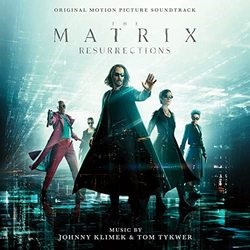
Admittedly, I had very low expectations for this score by the team of Tom Tykwer and Johnny Klimek (CLOUD ATLAS). I loved Don Davis’ post-minimalist take which sort of exploded into our collective awareness in 1999 when the first film in this series appeared. Fortunately, this score was not just a lot of euro-club trance music but a rather well-crafted work of tightly-woven motives and thematic statements (including references to the original trilogy) that works quite well. All the “remixes” fill out the album for fans of that type of music, but the score material proves to be quite engaging with a heavy emphasis on strings and brass and blends of electronics.
BEST CLASSIC SCORE RELEASES
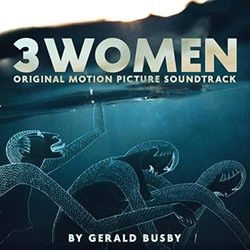
Though this received a digital-only release from Wave Theory Records, this premiere of Gerald Busby’s score for the Robert Altman film 3 WOMEN (1977) is an important release from the last year. Busby is a composer form NYC’s avante-garde noted for his ballets for Paul Taylor and for being Virgil Thomson’s associate. As one might suspect, this film has its musical roots in the experimental music of IMAGES (1972) which was composed by John Williams. It was Williams that helped Busby secure the best Hollywood musicians noted for their work on contemporary music to record the score. The modernistic style makes the approach a rather unique one in the scoring of films that punches up the bizarre qualities of the landscape and narrative.
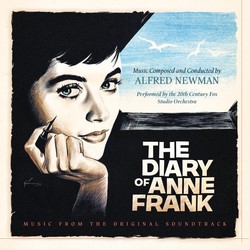
The last couple of years the appearance of new, remastered Golden Age scores has been a bit sporadic and so when one does appear, it is worth sitting up to take notice. Alfred Newman’s gorgeous score for THE DIARY OF ANNE FRANK (1959) is sort of on the cusp of the shift in film scoring styles. This particular release, which features the remastering of the original album and a score presentation disc, allows a chance to hear one of the composer’s most gorgeous and poignant melodies. It is also an opportunity to really appreciate the performance and scoring style of Newman as a conductor and composer. The 20th Century Fox orchestra at this point is a well-oiled machine that responds so well to Newman’s direction. The music itself is sometimes reminiscent of Wagner’s Parsifal which adds its own rather unusual shadow across this moving story.
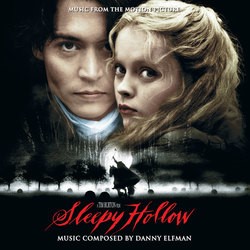
Intrada released a lot of fine scores this year, but really needs to be singled out for this rather exhaustive exploration of Danny Elfman’s SLEEPY HOLLOW 1999. In addition to remastering the original soundtrack album, we get to hear the score as it was presented (mostly) in the film followed by another disc featuring a host of alternate versions and takes. The latter provides a rather interesting instruction on the creative and editing process behind film scoring and this presentation would requite even more detailed work to really help get a full grasp at all that went on there. But, the notes help set up what changes were mostly made and there is plenty here to listen and compare to as one can gain a deeper appreciation for what goes in to a modern scoring session and the music that is chosen and edited for use.
BEST COMPILATION RELEASE
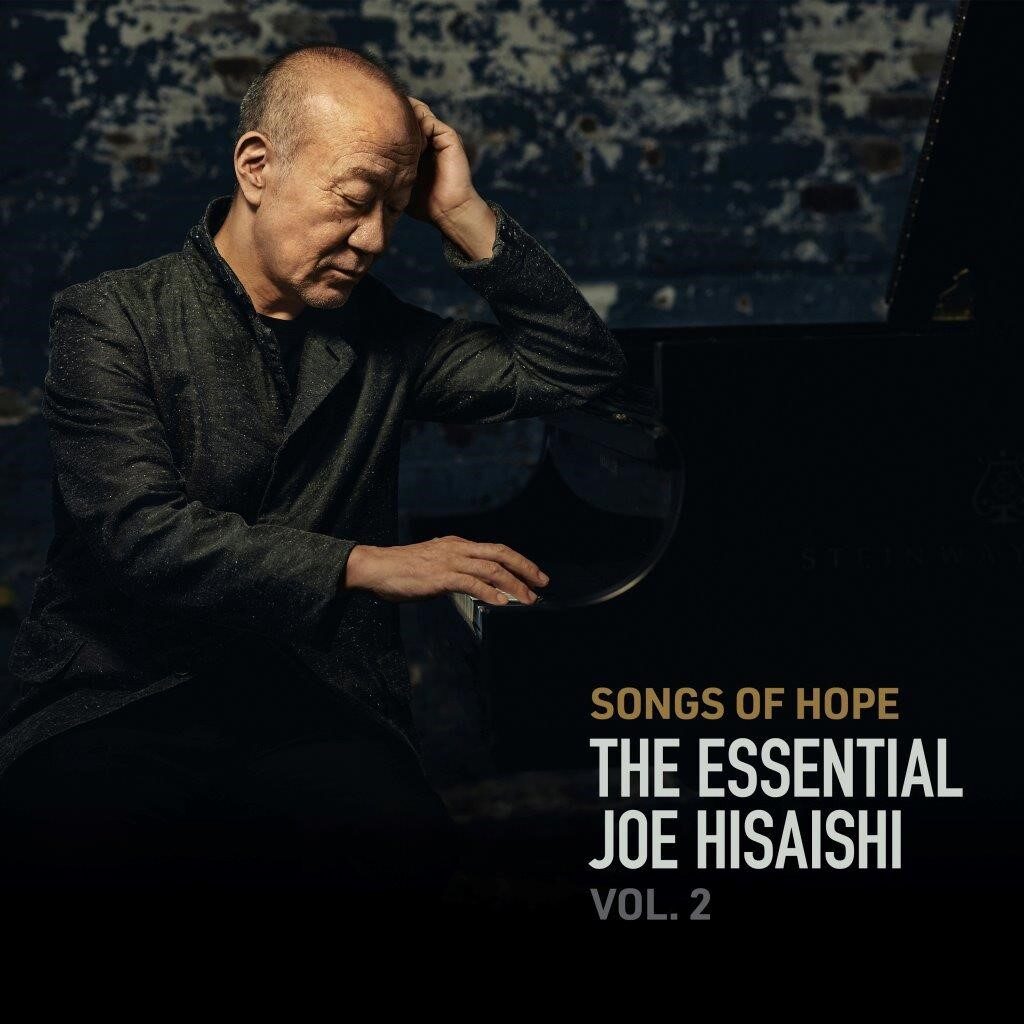
Composer Joe Hisaishi crafts truly gorgeous themes and this compilation provides a great overview of both his film and concert music. There are blends of his minimalist style as well as some truly great romantic lyricism that moves across his hybrid style blending European and Japanese classical music. This two-disc set provides an ample survey of his music across some of his best-loved scores and themes. Easily a fine way to discover, or rediscover, his music on this excellent release on Decca.
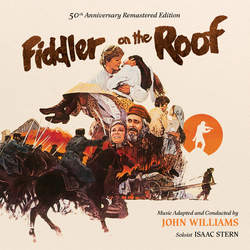
Perhaps one last note here to also mention La-La Land’s superb 3-disc set of FIDDLER ON THE ROOF which, like Intrada’s release mentioned above, gives listeners a window into the working process of a film score. Here we get album versions, film versions, background music that was used for the pre-film vocals, and some of John Williams’ underscore material. It is most fascinating to hear how his stylistic arrangements tended to be used less in the finished product. As Spielberg rolls out his take on WEST SIDE STORY, such a release is equally instructive for comparison to how this newer musical has been brought back to the big screen. There were also a number of esoteric releases on Dragon’s Domain Releases that brought to light the work of the lesser-known Albert Glasser who worked on a lot of B pictures in the 1950s. They are worth checking out for those interested in music off the beaten path.
–edited by Roger Hall
